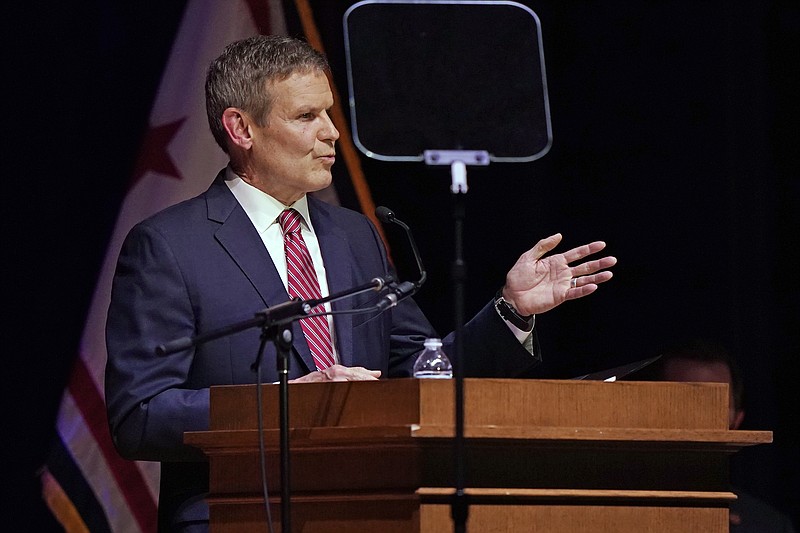It has been a given - almost from the beginning of talks about TennCare III - that anything the Volunteer State would do about exchanging a Medicaid health care waiver for a Trump administration health care "block grant" would end up costing us more money and giving Tennessee's working poor less coverage.
It was a given because our Republican super-majority leaders simply refused to even entertain the idea of expanding Medicaid under the Affordable Care Act, also known as Obamacare - even when the federal government pledged to pay for 90% of that expansion with federal tax dollars we already pay.
Twice, conservative former Gov. Bill Haslam tried to go that expansion route with a Tennessee twist. And twice the Tennessee General Assembly nixed it.
But in late 2019, Haslam's successor, Gov. Bill Lee, followed the short-sighted fiscal conservative direction of Tennessee's General Assembly and sought to become the first state to give the Trump administration one of the things it wanted most: to slash Medicaid spending by supplanting it with "block grants" - a strategy congressional conservatives repeatedly had tried to implement without success.
In the Trump administration's final days, the federal government approved a 10-year renewal of TennCare - the state's Medicaid program that uses a combination of state and federal funds to provide health insurance coverage to about 1.4 million low-income families and children, pregnant women and disabled Tennesseans.
Other states had given the block grants idea the cold shoulder. It seemed that the tricky part for those Washington conservatives was persuading states to accept fewer federal dollars long term than they get under the ACA.
Tennessee, however, ponied right up, trotting out the argument that states can do it better if they're given "flexibility" with how that money is spent. And if we save money, we get to keep some of the savings.
There's a catch, of course. "Flexibility" under the proposed program - called TennCare III - is code for what-can-the-program-not-cover.
Saving money with block grant "flexibility" almost inevitably means cutting new big holes in our health care safety net. Holes like redefining pre-existing conditions. The state may not say TennCare won't cover asthma or diabetes, for example, but might instead say the insurance for those of us who depend on TennCare might not cover the same equipment or the best medications, as required by the current TennCare contract.
Last week, Gov. Lee, in his State of the State address, touted the state's newly approved Medicaid block grant program as a victory, but he warned: "Let me be clear: if partisan attacks that call for this block grant to be rescinded prevail, the state will not get these shared savings dollars that we plan to use to improve health care for vulnerable Tennesseans."
(READ MORE: Future of state's new TennCare program in limbo under Biden administration)
By "partisan attacks" he means the executive order signed by President Joe Biden on Jan. 28 to strengthen Medicaid and the ACA. Biden's order suggests the program as it stands now may be short-lived, and the new president is calling for a review of "demonstrations and waivers that may reduce coverage."
Lee may not be pleased - nor are Tennessee's lawmakers who've been trying to fast-track the implementation of TennCare III - but Tennesseans and taxpayers should be.
Because Trump and Tennessee's GOP super-majority still want to erase anything that hints at the ACA, our state has been racing to install a program that would let the federal government off the hook for its ACA guarantee of a continuing 2-1 Medicaid spending match - no matter how much our costs rise thanks to things like pandemics, tornado injuries or a rise in the number of enrollees who lose their private insurance because of job losses. In its place, we'll take a block grant that forever caps the amount of federal dollars we can use for Tennessee health care. And we'll hope for savings.
Under Lee's TennCare III block grant arrangement, Washington will send back to us $7.9 billion of our tax dollars annually. If our costs increase (as they always have), that's for us to make up at the state level. If our costs go down (and when have they ever?), we will share in the savings.
Michele Johnson, executive director of the Tennessee Justice Center, said Tennessee already has "one of the leanest Medicaid programs in the nation," and she doesn't see how we can cut any more TennCare spending dollars out for "savings" without hurting families.
"This isn't about shared savings, because Medicaid expansion by now would have brought us $8 billion. They have refused to take advance of that, so it isn't about the money - it's about the ideology," she said.
Talk about "partisan attacks."
Maybe the Biden administration's review will save us.
